So you’ve received a letter of admission from a foreign university. Studying overseas requires careful preparation.
In this article, you will learn what to expect, what to prepare for, and what you need to anticipate when going to study in another country.
This is a helpful checklist for any freshman who is going to study:
Remember that preparation for your departure to study abroad can take more than a couple of months! That’s why IvyPanda experts have gathered some tips and checklists that will come in handy as you get ready. In addition, look up college essay examples containing students’ experiences for clearer understanding of what to expect.
Just keep reading.
Checklist for a Freshman in the United States
The preparation plan for international students is quite similar for most destination countries. However, there are some nuances that you should know.
Below, you will find detailed information on how to prepare yourself to study in the USA:
1. 9-12 months before your studies begin
The best timeframe to start planning your trip is 9-12 months before departure. During this time, you will be able to make all the necessary preparations and get your affairs in order without haste. So let’s start:
Plan your finances
Perhaps one of the most significant aspects affecting any student’s choice of destination country and study program is the cost of tuition and fees. Education in the United States is more expensive for foreigners than for citizens. For example, the tuition and fees for one semester at the University of Michigan for international students is US $41,327, while state residents only have to pay US $14,522. At the same time, this amount does not include living expenses, required textbook purchases, and other fees.
Think about the possible sources of financing for your education: personal funds, scholarships and grants, part-time work on campus, and freelancing. You can also contact the admissions office of your university or college regarding different sources of financial assistance available to you.
Remember that gifted students can apply for both federal and university scholarships as well as grants from private companies and foundations. Of course, not all scholarship programs will be able to fully cover your expenses. However, even a small amount of financial aid will reduce the pressure on your budget.
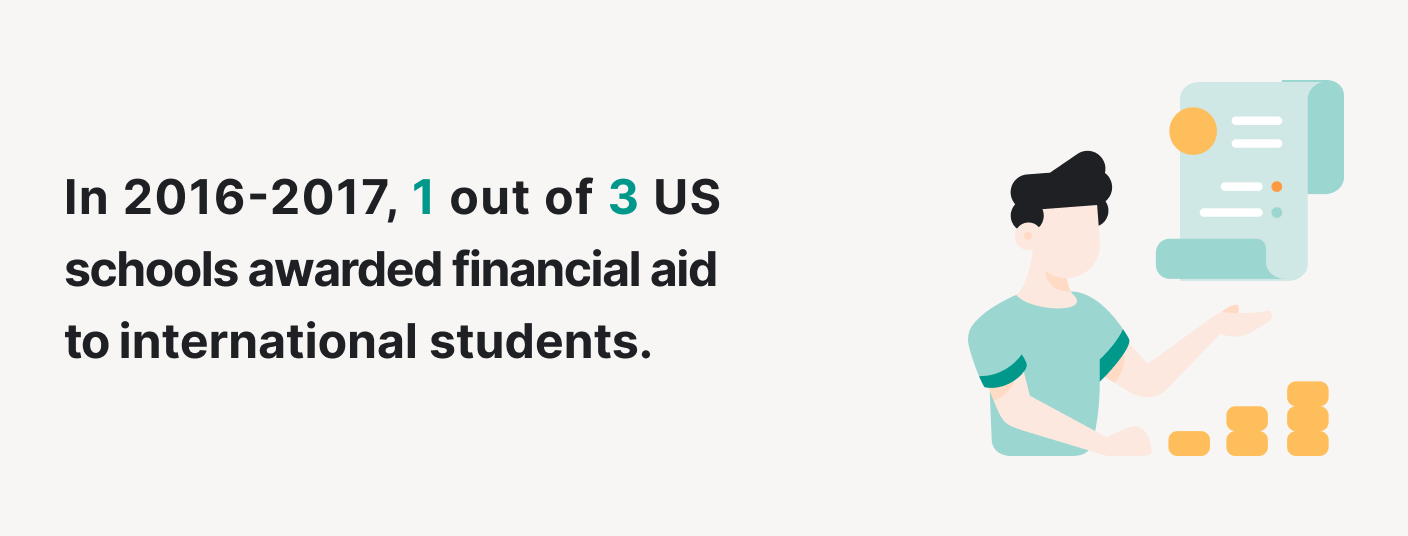
Prepare the documents
Almost all American colleges and universities require applicants to provide academic transcripts, letters of recommendation from teachers, language test results, etc.
So it’s time to make sure you have all these documents.
Check out your employment options
As we mentioned above, one of your sources of income can be part-time employment. You can work both on and off campus, but you should know that F-1 visa students are not allowed to work off-campus during their first year of studies. Starting from the second year, you will be able to take paid internships off campus:
- Curricular Practical Training (CPT)
- Optional Practical Training (OPT)
- Science, Technology, Engineering, and Mathematics (STEM) Optional Practical Training Extension (OPT)
Before you start any internship, you should contact your academic advisor at your university. According to visa regulations, all training must be directly related to the curriculum.
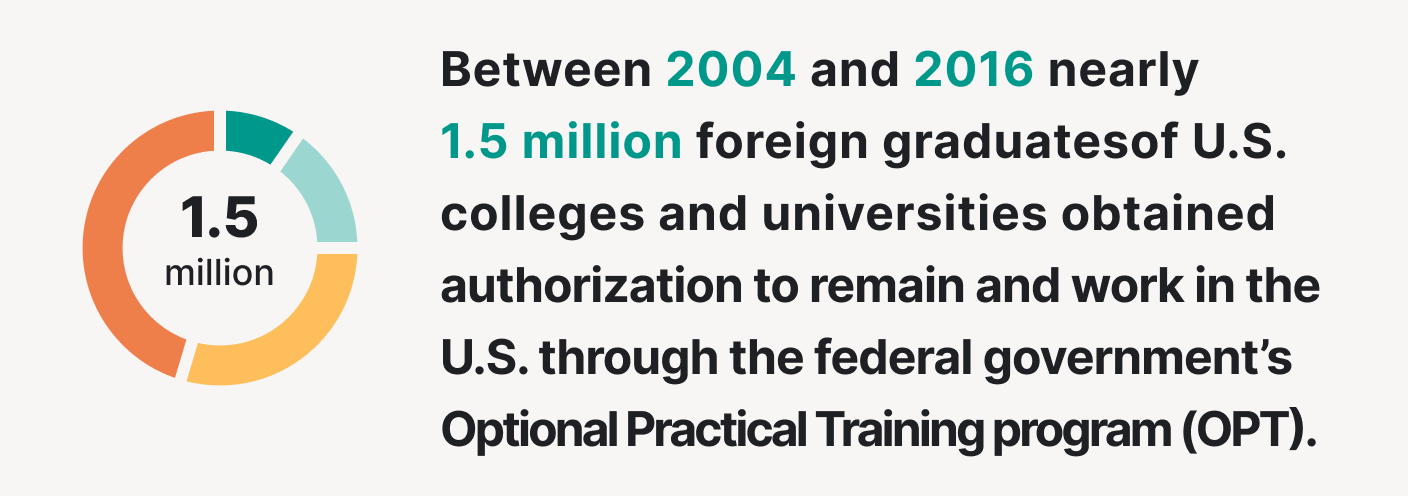
Improve your language skills
Getting a passing score on a language exam does not guarantee a high level of English knowledge nor the absence of a language barrier during your first few months of studying.
You may ask: how is that possible?
Many Western universities artificially lower the language requirements in favor of profiteering. Therefore, even if you have achieved the required scores on the TOEFL or IELTS, that doesn’t necessarily mean that your level of English is sufficient to complete your chosen studies.
So what you should do?
It’s simple: improve your language skills. Read research articles in your discipline, chat with native speakers, and join discussions on English-speaking forums. If you have the opportunity, you can also visit an international language school to fully immerse yourself in the language environment. All of the above strategies will help you better prepare for further study in the United States.

2. 4-9 months before your studies begin
The next stage of preparation is 4-9 months before the start of your studies. By this time, you’ll have already submitted all the required documents and, possibly, received a letter of admission.
Here’s what you should do next:
Pass the medical examination
Before you leave, you will have to get medical insurance and provide proof of immunization. That’s why you should take care in advance that you have all the necessary vaccinations and have filled all prescribed medicines if you have any chronic diseases.
If you’ve missed any required vaccinations, be sure to get them. Remember that the interval between vaccinations should be at least one month.
In addition, American universities will only be able to provide minimal medical care. If you have to take any medications, you should see a doctor to get a prescription.
Most likely, it’ll be cheaper to buy prescriptions in your home country than in America. Make sure that the expiration dates of your medications are as far away as possible and that your name is clearly indicated on them.
Apply for a visa
After getting your enrollment letter, ask your university about the process of issuing your I-20 form. This document reflects information about your enrollment and terms of study in your US university or college. This form should contain the following data:
- Your name as written on your passport
- Your date and country of birth, program of study, graduation date, date of departure, and financial information
- A signature, in ink, from the university or college’s official representative
Carefully check your I-20 for any mistakes. Note that this form can be replaced in case you need to leave the country, your date of study completion has changed, or the form has been lost or destroyed.
After receiving your I-20, you can apply for a visa at the American embassy in your country. If you plan to study in a vocational training program, you will need to apply for an M-1 visa. Academic and language program students will need to apply for an F-1 visa.
You cannot apply for a student visa more than 120 days before the start of your training.
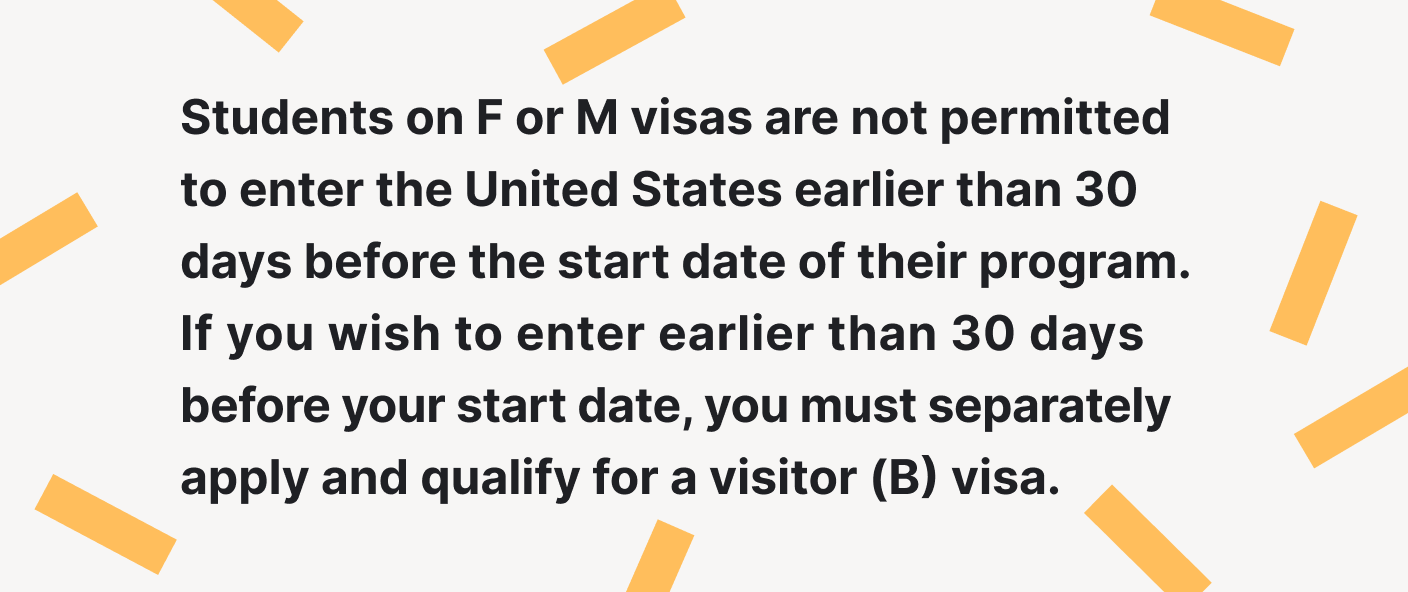
Buy plane tickets
It may seem to you that buying tickets 4 months in advance is too early. However, you can save a lot buying tickets in advance.
Send letters to the universities and colleges that you didn’t choose
You may receive several letters of admission from US institutions. Do not forget or be too lazy to send letters of regret to these institutions, notifying them that you do not plan to study there.
3. 3 months before your studies begin
Take care of your health insurance
To study abroad, you will need to have health insurance. You can contact an insurance company directly or ask your agent for help. Many colleges and universities have specific rules regarding insurance coverage, so make sure you check with the international student office for all relevant information.
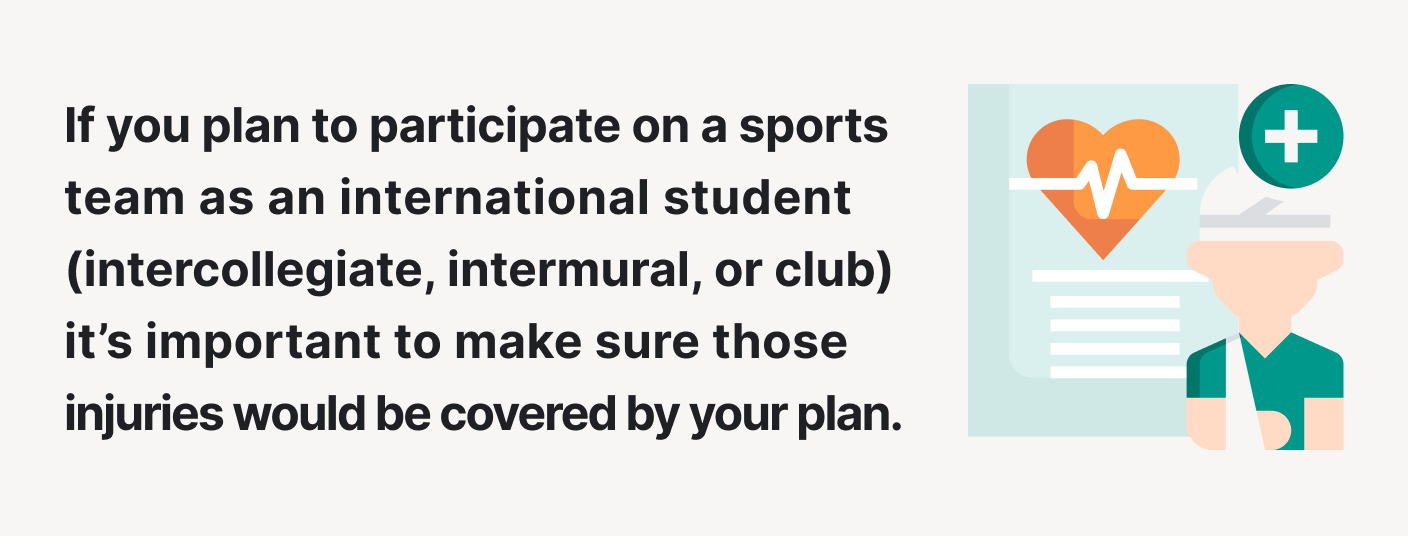
Plan your stay
Some colleges and universities in the United States require first-year students to live on campus. You should research in advance how to reserve your spot in a dormitory. Depending on the size and style of room, the estimated cost of living on campus is US $10,000 – $15,000 per 9 months.
4. 1-2 months before your studies begin
A couple of months before you start your studies, you will have a lot to do:
Pay your tuition and fees
Ask your university’s admission officer or international student office for bank transfer details.
Sign up for an orientation session
The sooner you sign up for an orientation session, the more choice you’ll have in regards to the classes and subjects that you would like to include in your curriculum.

Buy prescribed medications
Please note that all medicines you carry should have your name on them to avoid unnecessary problems.
- Pack your luggage and make copies of all necessary documents
- Organize your airport pick-up and receive confirmation of your booking
- Exchange some local currency
- Obtain an international driver’s license or an English translation of your driver’s license
If you want more information about studying in the United States—including paperwork, employment, and other opportunities—check out these sites:
- Usa.gov/visas—all necessary information regarding US visas
- educationusa.info—a network of domestic and international student counseling centers
- Edupass.org—a website dedicated to studying and living in the USA
- Studyinthestates.dhs.gov—a website created for foreigners who both plan to study and are already studying in the USA
- Uscis.gov—a resource where you can get the necessary information about obtaining a work permit during your studies
Prepare to Study in Australia
Are you going to study in Australia? Find out what needs to be anticipated and planned when going to study in this country:
Before you leave
Plan your living expenses
As a rule, Australian universities and colleges do not require students to stay on campus. Therefore, you can rent an off-campus room or studio.
The cost of living in a dorm may be slightly higher than in shared apartments, but it is important to remember that in the latter case, you’ll face extra expenses such as transportation and utilities. Also note that most properties for rent are unfurnished.
On average, living expenses are approximately AU $20,000-30,000 per year.
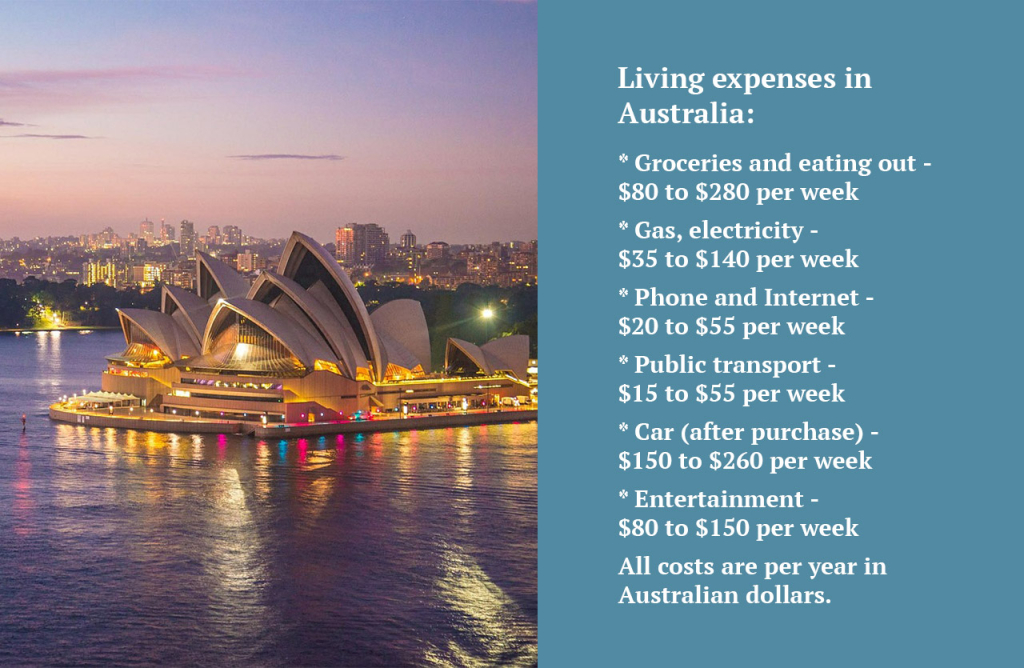
Apply for a student visa and get health insurance
Student visas (subclass 500) are issued for a period of up to 5 years. According to the visa rules, you can travel around Australia and abroad without having to re-apply; work up to 40 hours within a two-week period from the beginning of your studies; and apply for temporary or permanent residence after graduation. In addition, if you plan to come to study with your family, relatives can also be included in your application.
The cost of an Australian student visa is AU $575, unless you bring family members with you.

The visa requirements for registration include:
- Personal ID/Passport
- Affirmation of sponsorship (for students under 18)
- Consent of parents
- Health insurance
- Financial documents proving that you have enough money to live and study in Australia
- Proof of English proficiency
- Employment history (if available)
- Confirmation of enrollment
The university will issue a confirmation of enrollment only after you officially confirm your acceptance, sign all necessary forms for enrollment, pay the first semester’s fees, and get insurance.
Book an airport pick-up and temporary residence
Many universities in Australia, such as the University of Western Victoria, offer free airport pick-up to international students and can help you book a temporary residence before you find a permanent apartment or dormitory.
If you plan to live off campus, you should arrive in Australia at least two weeks before your scheduled orientation session. Remember that apartments near campus are always in high demand.
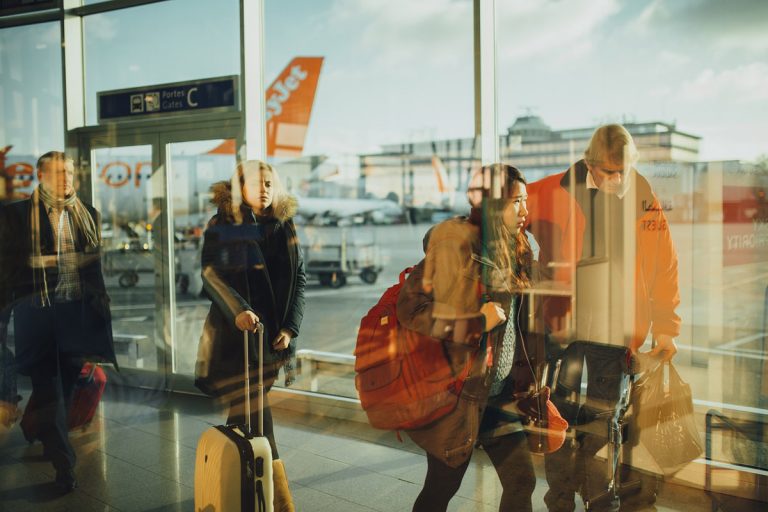
After you arrive
You’ll have to attend an orientation session. The week before the start of class, or week zero, typically involves becoming acquainted with the faculty and teachers, going on campus excursions, and attending informational sessions on course issues.
You may also be interested in the following resources about learning and living in Australia:
- Studyinaustralia.gov.au—the Australian government’s official website for international students
- Immi.homeaffairs.gov.au—the official resource of the Department of Home Affairs
- Ato.gov.au—the Australian Tax Office website
- Communications.gov.au—more about telephone use, radio, and internet in Australia
- Youthlegalserviceinc.com.au—Youth Legal Service offering free services for young people under 25 years old
What an International Student Needs to Study in the UK
Studying in the UK can be an exciting adventure, but only if you take into account all of the details when preparing for your departure:
Student visa
To study in a UK university, you should apply for a Tier 4 visa. Similar to the United States or Australia, you’ll need a confirmation of enrollment issued by a university or college in order to apply for a visa.
Make sure that your chosen institution appears on the list of licensed Tier 4 sponsors.
Students with a Tier 4 visa who study in full-time undergraduate, graduate, or postgraduate programs can work 10 to 20 hours per week, depending on the institution.
If you’re not sure whether you’re allowed to work, check your visa sticker.
In addition to your confirmation of enrollment, you should submit police certificates, financial documents, and proof of English language proficiency.

Accommodation
British students have access to on-campus accommodation in university dormitories, as well as private apartments.
Typically, universities and colleges offer two accommodation options for students: 1) catered rooms where you can buy meals in the dining room and 2) self-catered rooms equipped with kitchens.
If you want to live off campus, you can rent an apartment or a room. Students usually rent furnished apartments, but in this case, you will have to get your own kitchen equipment and home goods.
Another common accommodation option is a homestay, which will allow you to better immerse yourself in the English language and British culture. For help, contact an agency that provides such services. Just make sure the agency is registered with the British Council.
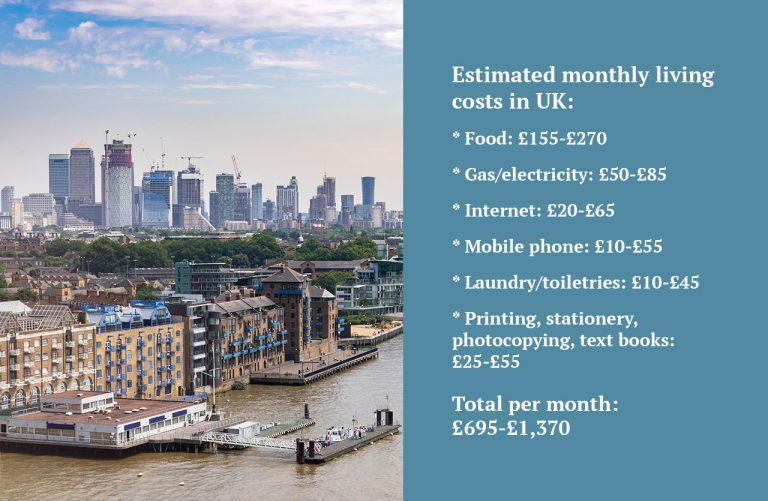
Transport
During your stay in the UK, you will most likely use public transport as there is a well-developed network of railroads, buses, underground, and taxi. By the way, if you buy a student Oyster Card, you can save on travel costs.
If you still want to travel by car, make sure that your driver’s license is valid in the United Kingdom and that you have valid car insurance.
In cities like London, Liverpool, or Belfast, it is also possible to rent a bike, which will keep you from wasting hours in traffic jams.
Access to medical care
International students who study in the UK can use the National Health System (NHS). You’ll have to pay a regular annual fee of £150 when applying for your visa. This amount covers access to free medical services, including emergency care and hospitalization, as well as discounts on visits to NHS-approved dentists.
University networks
Most universities provide students with access to internal networks where they can learn about class schedules, extracurricular activities, and other useful information for freshmen.
In addition, you will receive a student email address, where you’ll receive important alerts and information from the school administration.
In general, preparations for departure to the UK are not very different from what we’ve described above. If you want more information, check out the helpful resources below:
- Britishcouncil.org—British Council website
- Ukcisa.org.uk—The UK Council for International Student Affairs site
- Nationalrail.co.uk—National Railway official website
- Oyster.tfl.gov.uk—a resource for managing your Oyster Card
- Tfl.gov.uk—bicycle rental in London
- Prepareforsuccess.org.uk—an interesting test to see whether you are ready for assignments in a British university
Education in Canada: What Prospective Students Should Know
If Canada is your destination country, then this section is for you. Are there any differences in the preparation process to study in Canada compared to other countries?
Keep reading to find out:
1. Student visa
Similar to the United States, the United Kingdom, or Australia, international students must apply for a study permit at the Canadian embassy in their home country.
Depending on the curriculum, this permit will contain information about the possibility of your employment in Canada: on campus, off-campus, or other locations. Please note that a physical copy of the study permit will be issued upon entry into the country; the study permit itself is not a visa or permission to enter the country.
In addition to the study permit, citizens of some countries must also obtain a Temporary Resident Visa before entering Canada. The validity of this visa will coincide with the term of the permit to study.
You should start your paperwork no later than four months before the start of your studies.
2. Accommodation
In Canada, a student is not required to live in a dorm on campus. However, on-campus living will save you time as well as transportation costs.
Dormitories in Canadian colleges and universities are equipped with everything you need for successful learning.
If you prefer to rent an individual apartment or house, then plan for monthly expenses ranging from CAD $800 to 2,000 per month (on average). The cost of rent will depend on the province, city, distance from campus, and type of housing.

3. Insurance
Foreigners are required to have health insurance. In some provinces, students whose study period exceeds 12 months are eligible for free medical care by registering with the relevant service providers. For more information, please contact your school.
Be sure to check out the resources below to learn more about your upcoming studies and what to expect for student life in Canada:
- Cic.gc.ca—the Canadian Immigration Service official website
- Canada.ca—the Canadian government portal
- Wes.org—evaluation service for education documents
- Planningcalc.utoronto.ca—financial planning calculator
- Scholarships-bourses.gc.ca—state scholarship programs for international students
In addition to official resources, many students also look for academic guidance when preparing for Canadian education and student life. Expert writers familiar with Canada’s higher education and immigration context can help you frame topics such as study permits, housing, or health insurance from both practical and scholarly perspectives. If you’d like tailored assistance on these themes, Custom-Writing.com connects you with professionals who understand the Canadian academic environment and can share their experience.
Getting Ready to Study in New Zealand
As we mentioned before, New Zealand is among the top 5 most popular countries for foreign students. If you want to know what to consider when preparing to study in New Zealand, just read on:
1. Visa processing
To apply for a student visa, you should provide the acceptance letter from your institution, financial documents certifying availability of funds (including enough for tuition and an additional NZ $15,000 for living expenses), and a copy of your return flight ticket. In addition, you may be asked to provide medical examination and fluorography results, as well as documents confirming the absence of a criminal record.
On average, the visa processing time is 20-25 days.

2. Insurance
International students who plan to study in a New Zealand higher education institution should apply for insurance. You can do this either in your own country or upon arrival.
Contact your university’s admissions office to determine whether your insurance is valid in New Zealand and, if necessary, to ask for recommendations on local providers.
3. Accommodation
When planning a trip to New Zealand, you should make sure that you have sufficient funds for a comfortable stay in the country.
You can choose accommodation in college or university dormitories. A room in a dorm, on average, will cost NZ $14,000-15,000 per 40 weeks. This cost typically includes utilities and internet.
Renting an off-campus apartment or room can be cheaper than staying in a dorm, especially in smaller cities like Dunedin. A joint apartment rental will cost approximately NZ $7,000-8,000 per year.
Make sure to bookmark the websites below if you’re applying to pursue a degree in New Zealand:
- Nzready.immigration.govt.nz—a tool to help you plan your study in New Zealand
- Studyinnewzealand.govt.nz—a detailed study guide for prospective students
- Education.govt.nz—the official website dedicated to education in New Zealand
International Student Packing Checklist
Well, now you have a clear idea on what to expect when going to study abroad, and you’ve hopefully already started to plan your next steps.
The only question that remains uncovered is this: what should you take?
The answer is simple—just use our ultimate packing list for international students! Remember: do not try to fit the entire contents of your bedroom into a suitcase.
Here is what you should pack:
Cabin baggage
- Documents: passport, confirmation of enrollment, insurance paperwork, plane tickets
- Phone and charger: Take care of the tariff plan and check whether your phone supports the cellular standards in your country of destination
- Cash: Keep the equivalent of US $300-500 in local currency. You can exchange part of the money in your own country and the rest at a local bank in your country of destination. Keep in mind that the exchange rates at the airport or the nearest exchange offices may be disadvantageous to you.
- Glasses or contact lenses
- Laptop and charger
- Camera (if desired), charger and necessary cables to it
- Notepad with important phone numbers: greeters at the airport, a contact person at your school, relatives, emergency contact
- Headphones
- Small umbrella
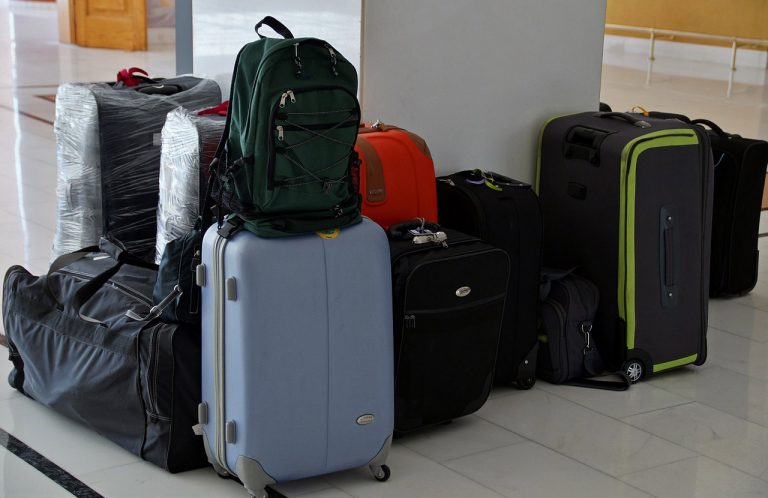
Luggage
- Clothing
- 2-3 pairs of underwear
- Socks: 2-3 pairs of normal socks and 1-2 pairs of woolen socks
- Short- and long-sleeved shirts
- Jeans and pants
- Business suit for special or formal occasions
- Skirts and dresses
- 1-2 belts
- Jacket
- Sleepwear
- 2-3 pairs of shoes for different seasons
- Winter accessories
- Toiletries
- Shampoo
- Toothbrush and toothpaste
- Soap, if you have a skin type that requires special care
- Deodorant
- Women’s hygiene supplies
- Hairbrush
- Shaving accessories
- Spare glasses and contact lenses
- Cosmetics
- Prescription medications
- Ensure the expiration date is as distant as possible, and your name is clearly labeled on the bottles.
- Also be sure to check whether it’s legal to import these drugs into your country of destination!
- Copies of important documents in case of loss
- Spare Wallet
Do not pack too many clothes. You can usually buy necessary clothing items at fairly low prices, especially if you keep track of seasonal sales in local stores. You can also purchase all food, kitchenware, and bedding in your destination country.
Now you know what to prepare for and what to take with you if you decide to study abroad. Tell us in the comments what you would add to our list!



